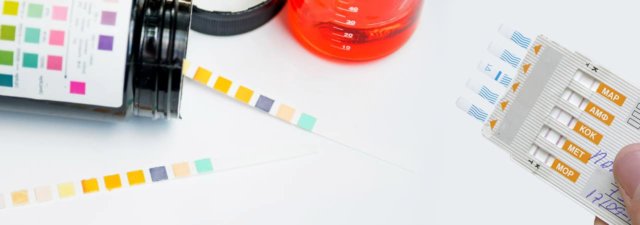Saliva drug tests aren’t as common as other types of cannabis drug tests (like urinalysis and blood screenings), but they are occasionally used for roadside drug testing if a police officer suspects a driver may be driving while high. They’re also sometimes used by employers for randomized drug screenings to see if an employee has recently used cannabis.
The good news is, THC doesn’t stay detectable in the saliva for very long. In most instances, THC metabolites are undetectable within 48 hours after a person smokes or ingests cannabis.
That being said, there are a variety of factors that can influence how long THC stays in your system, and there are unfortunately no hard and fast answers to the question of how long THC stays in your saliva. Things like body mass index, metabolism, and age will all come into play.
However, by far the most important thing to take into consideration is how often – and how much – you smoke. Check out the table of contents below to jump down and find out how long a saliva drug test can detect marijuana for. Or, for a more complete and well-rounded discussion on the topic, continue reading below.
What is Saliva Drug Testing for Marijuana?
Drug testing is mostly reliant on blood or urine samples to identify if a person has used cannabis within the last 30 days. However, some companies are turning to faster and cheaper alternatives such as saliva drug testing for marijuana. Employers, athletic associations, and even police units are starting to use saliva tests more, as they can accurately indicate if a person has used cannabis within the past 24 or 48 hours.
In a functional sense, saliva can be used to test for drug use in the same way that blood and urine can. Saliva drug tests require the subject to provide a sample, either by spitting or by holding an absorbent pad in their mouth for a short period. The advantage of cannabis saliva testing over blood and urine testing is that it is quick, convenient, and non-invasive; it can be done anywhere without infringing on the subject’s privacy.
In the last half-decade, scientists have made considerable improvements in methods that optimize THC saliva drug testing. Another advantage of saliva testing for marijuana is that, since the tests can be done in the presence of another person (unlike urine testing), the possibility of cheating is basically non-existent. These factors make saliva drug testing an ideal tool for use on the roadside, as well as the workplace.
Since they can be done in the presence of another person (unlike urine testing), the possibility of cheating on a saliva drug test is virtually non-existent.
How Does Saliva Drug Testing Work?
Your mouth contains three major salivary glands that produce as much as several milliliters of saliva per minute. Various factors influence the amount of saliva you produce during the day, including specific foods you eat, how often you hydrate, and whether you take certain drugs or medications. Emotions like stress and anxiety can also affect salivary gland activity.
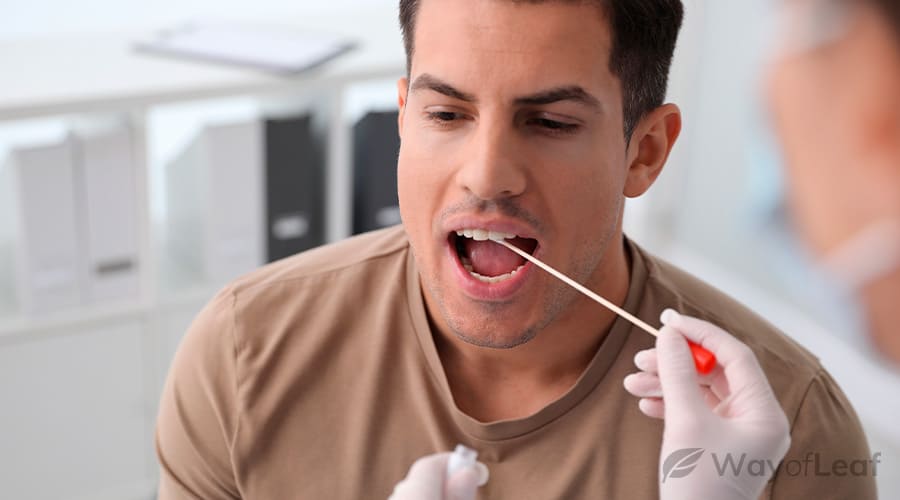
In most instances, it takes just a few seconds to collect enough of a sample to perform an accurate saliva drug test for cannabis. It can sometimes be challenging to get an adequate amount of saliva, however, since many people feel anxious before taking a drug test – which can cause dry mouth.
Certain substances (including marijuana itself) also produce dry mouth as a side effect, which makes it hard to collect enough saliva to perform a THC mouth swab test. If you need to take a saliva drug test but have a dry mouth, you may be asked to suck on a citrus candy first to help stimulate natural saliva production.
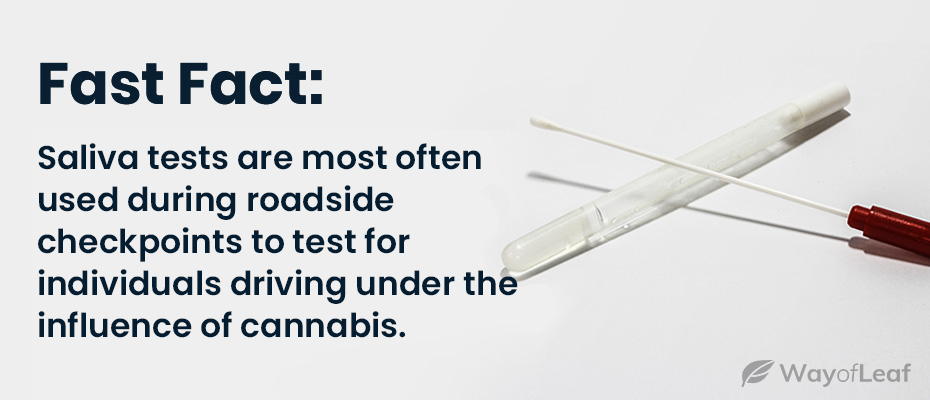
In addition to cannabis, a saliva sample can also be used to test for recent use of alcohol, amphetamines, cocaine, opioids, anabolic steroids, and other drugs. The level of drug metabolites found in the saliva is similar to levels seen in blood screenings during the elimination phase.
The compound that is most often tested for in saliva drug tests is Δ9-tetrahydrocannabinol, aka delta 9 THC. This is the compound that produces marijuana’s high. The cut-off point for the presence of THC (as deemed by the Substance Abuse and Mental Health Services Administration, or SAMHSA), is 50 ng/L for initial testing and 15 ng/L for confirmation tests.
So… How Long Does THC Stay in Your Saliva?
The best academic reference that we have to go off of in terms of how long weed is detected in the saliva, suggests about 24-72 hours for occasional users, and up to 30 days for frequent users:
- For occasional users, THC from marijuana is detectable in the saliva for one to three days
- For more frequent users, THC can be detected in the saliva for up to 30 days
Why does the rate differ so much?
Around 85% of cannabis metabolites are excreted via the urine and feces over the course of a few days. However, THC is fat-soluble, meaning it can be stored in fatty tissues for long periods of time. In heavy users, cannabis metabolites (such as THC-COOH, which are detectable in saliva tests) can be reabsorbed into the bloodstream from the kidneys for 30 days or even more. When THC metabolites are reabsorbed into the bloodstream, it’s possible they can be detected by a saliva drug test, even if you haven’t used cannabis in weeks.
The Basic Chemistry of Cannabis Metabolization
Cannabis contains hundreds of different compounds, all of which are metabolized by the body at different rates. When someone smokes marijuana, THC enters the bloodstream almost immediately and peaks 3–10 minutes after inhalation. With edibles, it can take 1–2 hours for THC to enter the bloodstream, since it has to travel through the digestive tract first.
One can feel the effects of marijuana for a few hours as the liver slowly breaks down active compounds in the plant. This complex metabolic process changes THC into various metabolites, the most common being THC-COOH (11-nor-9-carboxy-Δ9-tetrahydrocannabinol).
The more frequently you smoke cannabis, the more metabolites will build up in your body’s fat stores. It’s also worth pointing out that regular or heavy smokers often take deeper inhales, meaning they initially absorb more cannabinoids compared to lighter users.
Smoking more simply means that traces of cannabis will stay in the saliva for longer. The rate of excretion of compounds also depends on things like gender, age, and weight. For example, women seem to be able to metabolize these compounds more quickly than men. Also, since THC is stored in fat, the compound is typically detectable in overweight individuals for longer periods of time.
Research on How Long Weed Stays in the Saliva
One study on the detection time for THC in oral fluid after regular cannabis smoking cited a maximum of eight days. The study also found that levels of THC-COOH in the urine were not consistent with levels of THC found in saliva; while THC-COOH levels decreased steadily over time in urine, examiners found negative salivary THC samples interspersed amongst positive samples. This suggests that THC levels can rise and fall over the course of a few days after smoking.
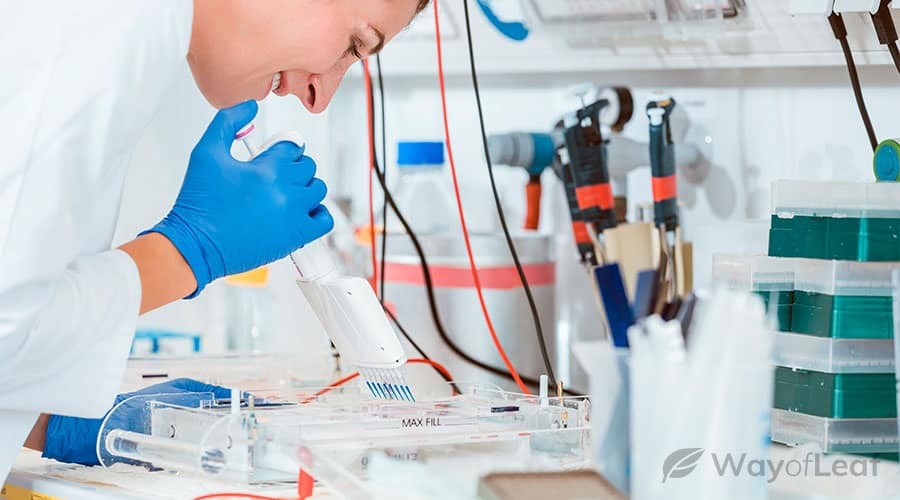
Another piece of research on oral fluid cannabinoid concentrations compared the levels of THC and other cannabinoids among frequent marijuana users, with that of occasional users. Participants in the study had their saliva checked for THC and other cannabinoids 19 hours prior to smoking. They smoked under controlled conditions, after which researchers tested them at regular intervals for a 30-hour period. All test subjects tested positive after 13.5 hours, suggesting a minimum time range for the elimination of THC metabolites in oral fluid.
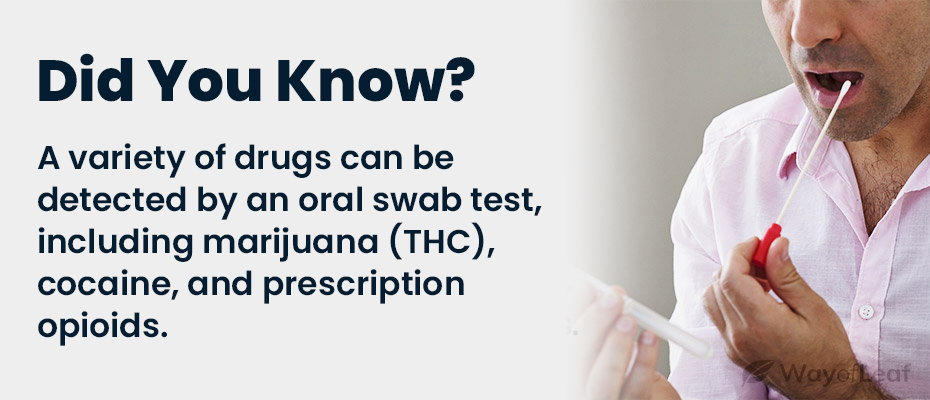
Making Sense of the Results for Cannabis and Saliva-Based Research
Regarding the above study wherein positive THC screenings were detected among all test subjects at 13.5 hours, it was observed that THC levels among occasional users began to fall after this amount of time, while THC levels among frequent users remained elevated for several hours.
Cannabidiol (CBD) and cannabinol (CBN) levels also dropped more slowly among frequent marijuana users. These chemicals were, however, at undetectable levels in both groups after six and 10.5 hours, respectively. The most significant difference between the two groups involved THC-COOH levels; for occasional smokers, baseline THC-COOH was less than 0.1 ng/L. This number rose after smoking, peaking at a median 17.6 ng/L after five hours. However, among frequent smokers THC-COOH levels were consistently higher, remaining closer to 100 ng/L both before and after smoking.
All in all, the results of this study suggest that THC-COOH levels appear to peak in infrequent smokers while remaining stable among heavier users. Authors also note that examiners can detect THC in saliva from secondhand smoke, whereas they seemingly cannot with THC-COOH. To summarize, it appears that the amount of time weed stays in your saliva not only depends on how often and how heavily you smoke, but also on which specific metabolites examiners are testing for (THC or THC-COOH).
Can You Reduce the Time That Weed Stays in Your Saliva?
Unfortunately, there is not much you can do to cut the time that traces of weed stay in your saliva. One study on drug testing in oral fluid found that food, drink, toothpaste, and mouthwash did not affect the concentrations of drugs found in saliva 30 minutes after use.
The authors did state, however, that the one thing that seems to lower cannabis concentrations is drinking beer immediately after smoking. Doing this appears to lower THC concentrations one hour after dosing. However, this is not much use if you are considering whether you are fit to drive. Adding alcohol into the mix will only make things worse. There was also no evidence that fasting, exercising, or increasing fluid intake significantly affects levels of THC or THC-COOH in the saliva.
Final Thoughts on How Long Weed Stays in Saliva
The amount of time THC stays in the saliva depends on how often and how much you smoke. If you are an occasional smoker, examiners may find traces of THC in the saliva for 1–3 days after smoking. However, if you are a regular, heavy smoker, marijuana can be detected up to a month later. This is most likely due to an accumulation of THC-COOH stored in fatty tissues, which are reabsorbed into the bloodstream by the liver.
Drug tests may be carried out by an employer, or even at a roadside test if the police have reason to believe someone is driving under the influence. For those that find themselves with any doubt regarding their ability to operate machinery or drive safely after using marijuana, do not drive, and do not take any chances. Not only could you pose a risk to yourself and others, but if your saliva tests positive for THC, you could find yourself in a world of legal trouble.


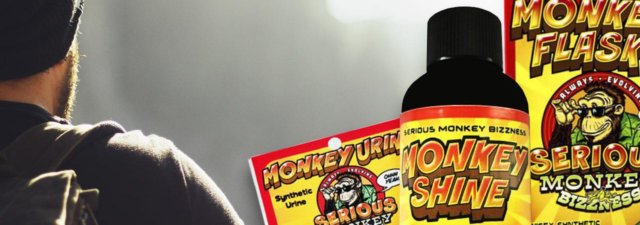

![How to Pass a Drug Test Today [5 Hacks]](https://wayofleaf.com/wp-content/uploads/2019/08/wol-banner-how-to-pass-a-drug-test-640x225.jpg)
